
The brilliant colors and bizarre patterns found throughout this 140-mile-long tract of badland topography in northeastern Arizona are somewhat reminiscent of colorful circus costumes.
Geologically, the Painted Desert is an expanse of heavily eroded, sedimentary formations with exposed, colorful strata of siltstone, mudstone, and shale interspersed with thin layers of limestone and volcanic material. Sparsely vegetated and arid, this region would have attracted little attention had it not been for its remarkable colors.
Visual artists have long been drawn to, and intrigued by, the Painted Desert's surreal colors and patterns. But while artists work from palettes with a wide array of oil, acrylic, and watercolor paints in every conceivable hue, the mineralogical palette that created the Painted Desert's natural colors has only a handful of minerals.
"COLORFUL AND STRANGE SCENERY"
When Spanish explorer Francisco Vázquez de Coronado ventured into the American Southwest in 1540, members of his scouting party became the first Europeans to see the Grand Canyon. To reach the canyon, they traversed an expanse of flat-topped mesas, sculpted buttes, and deeply eroded gullies. Awed by its kaleidoscopic colors, they named the region El Desierto Pintado-the Painted Desert.
In 1858, John Strong Newberry, a geologist with a U. S. Army exploratory expedition, made the first documented use of the English term "Painted Desert" when he described in detail the region's "colorful and strange scenery."
It was initially thought a different mineral caused each of the Painted Desert's colors-blacks, grays, and off-whites to reds, pinks, yellows, greens, blues, purples, and browns. By the late 1800s, geologists had learned that the myriad colors of these 210-million-year-old Triassic sediments were created by only a few minerals.
REDS, YELLOWS, AND BROWNS
Bu hikaye Rock&Gem Magazine dergisinin May 2023 sayısından alınmıştır.
Start your 7-day Magzter GOLD free trial to access thousands of curated premium stories, and 9,000+ magazines and newspapers.
Already a subscriber ? Giriş Yap
Bu hikaye Rock&Gem Magazine dergisinin May 2023 sayısından alınmıştır.
Start your 7-day Magzter GOLD free trial to access thousands of curated premium stories, and 9,000+ magazines and newspapers.
Already a subscriber? Giriş Yap
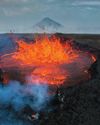
THE BRIGHT SIDE OF VOLCANIC ROCK
As a mineral resource, volcanic rock is decidedly short on glamour.
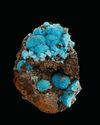
The Other Copper Minerals
12 Lesser-known Collectible Species

MINERAL COLLECTING -AND ROCK & GEM
Evolving Together FOR 54 YEARS
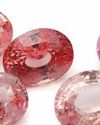
Gemstone Trends
A Look Back at 2024 & What to Expect in 2025
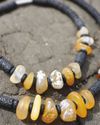
How to Make a GEM BEAD NECKLACE
No Lapidary Experience Needed!
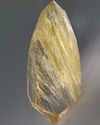
Framing Nature's Art
Faceting Rutilated Quartz for Beginners
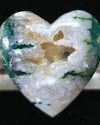
BEDAZZLED BLUE SEAM AGATE
More than several centuries ago, mining was the profession most often seen as befitting of men.
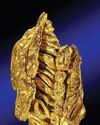
ROCK & GEM FIELD GUIDE:
Spinel is a captivating gemstone with a rich history of being mistaken for gems like ruby and sapphire.
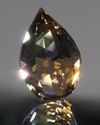
SNAKE SCALE DROP 1.5:1
This Faceting Focus is revisiting the briolette gemstone design because of its popularity with independent and hobby gemstone faceters.
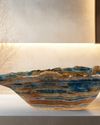
STONE CHIC
How Earth-Inspired Decor Brings Comfort to our Home